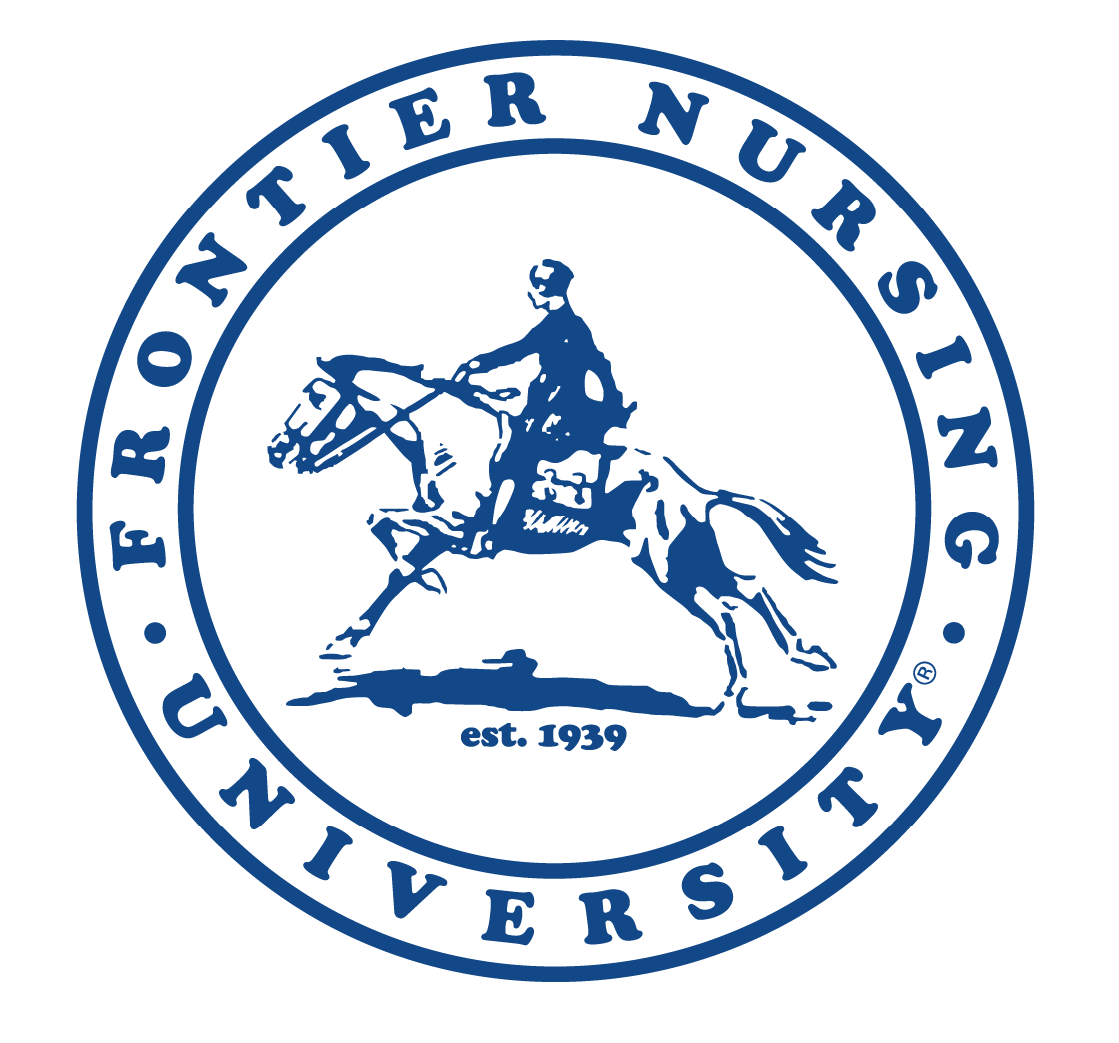 According to the American Psychological Association (APA), America makes up less than five percent of the world’s population, yet we consume nearly one-third of the global supply of opioids. More often than not, this high use of opioids is an abuse of medication and street drugs rather than a healthy, prescription dose. According to the most recent information from drugabuse.gov, we are currently losing an average of 128 Americans every day from opioid overdoses. As this trend continues to devastate regions across the country, the APA‘s substance abuse page is pressing for more psychologists to become part of the solution by helping recovering patients deal with emotional trauma, and taking preventive measures, such as identifying at-risk patients, to combat the growth of this disease.
According to the American Psychological Association (APA), America makes up less than five percent of the world’s population, yet we consume nearly one-third of the global supply of opioids. More often than not, this high use of opioids is an abuse of medication and street drugs rather than a healthy, prescription dose. According to the most recent information from drugabuse.gov, we are currently losing an average of 128 Americans every day from opioid overdoses. As this trend continues to devastate regions across the country, the APA‘s substance abuse page is pressing for more psychologists to become part of the solution by helping recovering patients deal with emotional trauma, and taking preventive measures, such as identifying at-risk patients, to combat the growth of this disease.
Frontier Nursing University (FNU) was founded with a vision to improve the healthcare of women and families in underserved populations. That’s why we are committed to training Psychiatric-Mental Health Nurse Practitioners (PMHNP) to combat this tragic loss of life. As we continue to send healthcare professionals into areas hit hardest by this crisis, we hope you will consider joining our fight.
The Problem of Opioid Abuse and Infant Mortality in America
As the opioid crisis continues to devastate our nation, we often think of the young adults and middle-aged populations who have fallen prey to addiction. Unfortunately in doing so, we are overlooking a secondhand demographic that has also experienced significant suffering: infants.
As the Center for Disease Control explains on their page on substance abuse during pregnancy, the number of pregnant women with opioid dependency has quadrupled since 1999. As a result, the number of babies being born with Neonatal Abstinence Syndrome (NAS), a condition where an infant shows symptoms of withdrawal as a result of the mother’s opioid dependence while pregnant, has increased at the same rate.
The most recent CDC data concludes that there is a NAS infant born every 15 minutes, adding up to the staggering number of around 32,000 babies a year. In addition to NAS, infants born to a mother with Opioid Use Disorder (OUD), are prone to feeding issues, breathing difficulties, preterm birth, and low birth-rate.
Although it can be difficult to determine just how high the infant mortality rate has increased due to opioid use, we can see some definite patterns. According to a JAMA network study by Julie R Gaither PhD, MPH, RN, between 1999 and 2016, the infant mortality rate increased by 268.2 percent with 6.7 percent of all opioid deaths occurring in children ages 0-4. Similarly, Indiana, the state with the highest infant mortality rate recently conducted a study showing that 16 percent of at-risk infants had traces of opioids in their umbilical cords at birth.
The Impact of Psychiatric-Mental Health Nurse Practitioners (PMHNP) in Fighting the Opioid Crisis
There can be many reasons that someone may begin to suffer from OUD, although according to a March of Dimes presentation, the most common of these include: community economic disadvantage, mental health problems, relational problems, and health conditions. Although a psychologist might not be able to control what medications someone’s healthcare provider recommends, they can be aware of health and community disadvantages that can put people at high risk and be prepared to help those demographics address these issues without turning to opioids. Additionally, when there are more licensed psychologists and other mental health providers in high-risk areas to help citizens deal with mental health and relationship problems, they could play a huge role in preventing future opioid use.
In an APA article titled How Psychologists Improve Care , Harvard psychologist Kathryn McHugh, PhD, discusses the importance psychologists can make in the treatment of opioid addiction. McHugh stresses that medication can treat the physical addiction, but the mental stresses that led to the initial addiction, as well as those resulting from extensive opioid use, also need to be addressed to avoid relapse. As McHugh explains, “It’s critical for people to also have behavioral interventions as needed. You need to treat the whole person to get them well.”
How You Can Become A PMHNP Through FNU
FNU has a long history of reaching underserved communities, and right now there is a desperate need for Psychiatric-Mental Health Nurse Practitioners throughout the country. If you are alarmed by the damage this disease is creating for individuals, families, and communities and are interested in providing relief for OUD ravished regions, consider FNU’s PMHNP program.
In an effort to meet you where you are, and reach at-risk communities faster, FNU offers two paths for achieving your PMHNP. You can apply for the PMHNP specialty track for registered nurses with a bachelor’s degree that are seeking a Master of Science in Nursing (MSN), or you can look into our Post-Graduate Certificate (PGC) track for Certified Nurse-Midwives and Nurse Practitioners. Both programs also give you the option to continue your studies and receive your Doctor of Nursing Practice.
Additionally, through our distance education model, your work will directly impact your community. The model allows you to complete your clinical practicum in your area, where you will study under preceptors who are well versed in the issues directly impacting your region. For more information on our PMHNP programs and the support FNU can offer you on your medical journey please visit our PMHNP page.
As the opioid crisis continues to rise throughout the country we hope that you will join us in fighting the horrors of OUD and NAS. The sooner we can get more dedicated professionals into the field treating recovering opioid users and preventing at-risk-cases, the sooner we will see a decrease in loss of life from opioid addiction and a healthier generation of infants entering our world. Together we can make a lasting impact on this crisis.









 Carrie Belin is an experienced board-certified Family Nurse Practitioner and a graduate of the Johns Hopkins DNP program, Johns Hopkins Bloomberg School of Public Health, Georgetown University School of Nursing, and Johns Hopkins School of Nursing. She has also completed fellowships at Georgetown and the University of California Irvine.
Carrie Belin is an experienced board-certified Family Nurse Practitioner and a graduate of the Johns Hopkins DNP program, Johns Hopkins Bloomberg School of Public Health, Georgetown University School of Nursing, and Johns Hopkins School of Nursing. She has also completed fellowships at Georgetown and the University of California Irvine.












 Angie has been a full-scope midwife since 2009. She has experience in various birth settings including home, hospital, and birth centers. She is committed to integrating the midwifery model of care in the US. She completed her master’s degree in nurse-midwifery at Frontier Nursing University (FNU) and her Doctorate at Johns Hopkins University. She currently serves as the midwifery clinical faculty at FNU. Angie is motivated by the desire to improve the quality of healthcare and has led quality improvement projects on skin-to-skin implementation, labor induction, and improving transfer of care practices between hospital and community midwives. In 2017, she created a short film on skin-to-skin called
Angie has been a full-scope midwife since 2009. She has experience in various birth settings including home, hospital, and birth centers. She is committed to integrating the midwifery model of care in the US. She completed her master’s degree in nurse-midwifery at Frontier Nursing University (FNU) and her Doctorate at Johns Hopkins University. She currently serves as the midwifery clinical faculty at FNU. Angie is motivated by the desire to improve the quality of healthcare and has led quality improvement projects on skin-to-skin implementation, labor induction, and improving transfer of care practices between hospital and community midwives. In 2017, she created a short film on skin-to-skin called 

 Justin C. Daily, BSN, RN, has ten years of experience in nursing. At the start of his nursing career, Justin worked as a floor nurse on the oncology floor at St. Francis. He then spent two years as the Director of Nursing in a small rural Kansas hospital before returning to St. Francis and the oncology unit. He has been in his current position as the Chemo Nurse Educator for the past four years. He earned an Associate in Nurse from Hutchinson Community College and a Bachelor of Science in Nursing from Bethel College.
Justin C. Daily, BSN, RN, has ten years of experience in nursing. At the start of his nursing career, Justin worked as a floor nurse on the oncology floor at St. Francis. He then spent two years as the Director of Nursing in a small rural Kansas hospital before returning to St. Francis and the oncology unit. He has been in his current position as the Chemo Nurse Educator for the past four years. He earned an Associate in Nurse from Hutchinson Community College and a Bachelor of Science in Nursing from Bethel College. Brandy Jackson serves as the Director of Undergraduate Nursing Programs and Assistant Educator at Wichita State University and Co-Director of Access in Nursing. Brandy is a seasoned educator with over 15 years of experience. Before entering academia, Brandy served in Hospital-based leadership and Critical Care Staff nurse roles. Brandy is passionate about equity in nursing education with a focus on individuals with disabilities. Her current research interests include accommodations of nursing students with disabilities in clinical learning environments and breaking down barriers for historically unrepresented individuals to enter the nursing profession. Brandy is also actively engaged in Interprofessional Education development, creating IPE opportunities for faculty and students at Wichita State. Brandy is an active member of Wichita Women for Good and Soroptimist, with the goal to empower women and girls. Brandy is a TeamSTEPPS master trainer. She received the DASIY Award for Extraordinary Nursing Faculty in 2019 at Wichita State University.
Brandy Jackson serves as the Director of Undergraduate Nursing Programs and Assistant Educator at Wichita State University and Co-Director of Access in Nursing. Brandy is a seasoned educator with over 15 years of experience. Before entering academia, Brandy served in Hospital-based leadership and Critical Care Staff nurse roles. Brandy is passionate about equity in nursing education with a focus on individuals with disabilities. Her current research interests include accommodations of nursing students with disabilities in clinical learning environments and breaking down barriers for historically unrepresented individuals to enter the nursing profession. Brandy is also actively engaged in Interprofessional Education development, creating IPE opportunities for faculty and students at Wichita State. Brandy is an active member of Wichita Women for Good and Soroptimist, with the goal to empower women and girls. Brandy is a TeamSTEPPS master trainer. She received the DASIY Award for Extraordinary Nursing Faculty in 2019 at Wichita State University.  Dr. Sabrina Ali Jamal-Eddine is an Arab-disabled queer woman of color with a PhD in Nursing and an interdisciplinary certificate in Disability Ethics from the University of Illinois Chicago (UIC). Dr. Jamal-Eddine’s doctoral research explored spoken word poetry as a form of critical narrative pedagogy to educate nursing students about disability, ableism, and disability justice. Dr. Jamal-Eddine now serves as a Postdoctoral Research Associate in UIC’s Department of Disability and Human Development and serves on the Board of Directors of the National Organization of Nurses with Disabilities (NOND). During her doctoral program, Sabrina served as a Summer Fellow at a residential National Endowment of the Humanities (NEH) Summer Institute at Arizona State University (2023), a summer fellow at Andrew W. Mellon’s National Humanities Without Walls program at University of Michigan (2022), a Summer Research Fellow at UC Berkeley’s Othering & Belonging Institute (2021), and an Illinois Leadership Education in Neurodevelopmental and related Disabilities (LEND) trainee (2019-2020).
Dr. Sabrina Ali Jamal-Eddine is an Arab-disabled queer woman of color with a PhD in Nursing and an interdisciplinary certificate in Disability Ethics from the University of Illinois Chicago (UIC). Dr. Jamal-Eddine’s doctoral research explored spoken word poetry as a form of critical narrative pedagogy to educate nursing students about disability, ableism, and disability justice. Dr. Jamal-Eddine now serves as a Postdoctoral Research Associate in UIC’s Department of Disability and Human Development and serves on the Board of Directors of the National Organization of Nurses with Disabilities (NOND). During her doctoral program, Sabrina served as a Summer Fellow at a residential National Endowment of the Humanities (NEH) Summer Institute at Arizona State University (2023), a summer fellow at Andrew W. Mellon’s National Humanities Without Walls program at University of Michigan (2022), a Summer Research Fellow at UC Berkeley’s Othering & Belonging Institute (2021), and an Illinois Leadership Education in Neurodevelopmental and related Disabilities (LEND) trainee (2019-2020). Vanessa Cameron works for Vanderbilt University Medical Center in Nursing Education & Professional Development. She is also attending George Washington University and progressing towards a PhD in Nursing with an emphasis on ableism in nursing. After becoming disabled in April 2021, Vanessa’s worldview and perspective changed, and a recognition of the ableism present within healthcare and within the culture of nursing was apparent. She has been working since that time to provide educational foundations for nurses about disability and ableism, provide support for fellow disabled nursing colleagues, and advocate for the disabled community within healthcare settings to reduce disparities.
Vanessa Cameron works for Vanderbilt University Medical Center in Nursing Education & Professional Development. She is also attending George Washington University and progressing towards a PhD in Nursing with an emphasis on ableism in nursing. After becoming disabled in April 2021, Vanessa’s worldview and perspective changed, and a recognition of the ableism present within healthcare and within the culture of nursing was apparent. She has been working since that time to provide educational foundations for nurses about disability and ableism, provide support for fellow disabled nursing colleagues, and advocate for the disabled community within healthcare settings to reduce disparities. Dr. Lucinda Canty is a certified nurse-midwife, Associate Professor of Nursing, and Director of the Seedworks Health Equity in Nursing Program at the University of Massachusetts Amherst. She earned a bachelor’s degree in nursing from Columbia University, a master’s degree from Yale University, specializing in nurse-midwifery, and a PhD from the University of Connecticut. Dr. Canty has provided reproductive health care for over 29 years. Her research interests include the prevention of maternal mortality and severe maternal morbidity, reducing racial and ethnic health disparities in reproductive health, promoting diversity in nursing, and eliminating racism in nursing and midwifery.
Dr. Lucinda Canty is a certified nurse-midwife, Associate Professor of Nursing, and Director of the Seedworks Health Equity in Nursing Program at the University of Massachusetts Amherst. She earned a bachelor’s degree in nursing from Columbia University, a master’s degree from Yale University, specializing in nurse-midwifery, and a PhD from the University of Connecticut. Dr. Canty has provided reproductive health care for over 29 years. Her research interests include the prevention of maternal mortality and severe maternal morbidity, reducing racial and ethnic health disparities in reproductive health, promoting diversity in nursing, and eliminating racism in nursing and midwifery. Dr. Lisa Meeks is a distinguished scholar and leader whose unwavering commitment to inclusivity and excellence has significantly influenced the landscape of health professions education and accessibility. She is the founder and executive director of the DocsWithDisabilities Initiative and holds appointments as an Associate Professor in the Departments of Learning Health Sciences and Family Medicine at the University of Michigan.
Dr. Lisa Meeks is a distinguished scholar and leader whose unwavering commitment to inclusivity and excellence has significantly influenced the landscape of health professions education and accessibility. She is the founder and executive director of the DocsWithDisabilities Initiative and holds appointments as an Associate Professor in the Departments of Learning Health Sciences and Family Medicine at the University of Michigan. Dr. Nikia Grayson, DNP, MSN, MPH, MA, CNM, FNP-C, FACNM (she/her) is a trailblazing force in reproductive justice, blending her expertise as a public health activist, anthropologist, and family nurse-midwife to champion the rights and health of underserved communities. Graduating with distinction from Howard University, Nikia holds a bachelor’s degree in communications and a master’s degree in public health. Her academic journey also led her to the University of Memphis, where she earned a master’s in medical anthropology, and the University of Tennessee, where she achieved both a master’s in nursing and a doctorate in nursing practice. Complementing her extensive education, she completed a post-master’s certificate in midwifery at Frontier Nursing University.
Dr. Nikia Grayson, DNP, MSN, MPH, MA, CNM, FNP-C, FACNM (she/her) is a trailblazing force in reproductive justice, blending her expertise as a public health activist, anthropologist, and family nurse-midwife to champion the rights and health of underserved communities. Graduating with distinction from Howard University, Nikia holds a bachelor’s degree in communications and a master’s degree in public health. Her academic journey also led her to the University of Memphis, where she earned a master’s in medical anthropology, and the University of Tennessee, where she achieved both a master’s in nursing and a doctorate in nursing practice. Complementing her extensive education, she completed a post-master’s certificate in midwifery at Frontier Nursing University.









 Dr. Tia Brown McNair is the Vice President in the Office of Diversity, Equity, and Student Success and Executive Director for the Truth, Racial Healing, and Transformation (TRHT) Campus Centers at the American Association of Colleges and Universities (AAC&U) in Washington, DC. She oversees both funded projects and AAC&U’s continuing programs on equity, inclusive excellence, high-impact practices, and student success. McNair directs AAC&U’s Summer Institutes on High-Impact Practices and Student Success, and TRHT Campus Centers and serves as the project director for several AAC&U initiatives, including the development of a TRHT-focused campus climate toolkit. She is the lead author of From Equity Talk to Equity Walk: Expanding Practitioner Knowledge for Racial Justice in Higher Education (January 2020) and Becoming a Student-Ready College: A New Culture of Leadership for Student Success (July 2016 and August 2022 Second edition).
Dr. Tia Brown McNair is the Vice President in the Office of Diversity, Equity, and Student Success and Executive Director for the Truth, Racial Healing, and Transformation (TRHT) Campus Centers at the American Association of Colleges and Universities (AAC&U) in Washington, DC. She oversees both funded projects and AAC&U’s continuing programs on equity, inclusive excellence, high-impact practices, and student success. McNair directs AAC&U’s Summer Institutes on High-Impact Practices and Student Success, and TRHT Campus Centers and serves as the project director for several AAC&U initiatives, including the development of a TRHT-focused campus climate toolkit. She is the lead author of From Equity Talk to Equity Walk: Expanding Practitioner Knowledge for Racial Justice in Higher Education (January 2020) and Becoming a Student-Ready College: A New Culture of Leadership for Student Success (July 2016 and August 2022 Second edition).